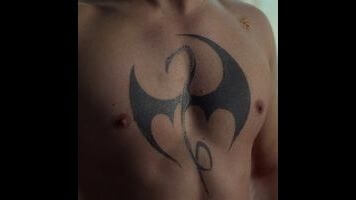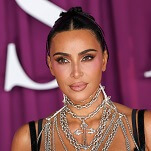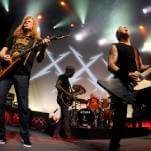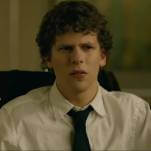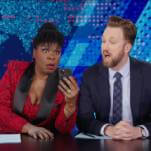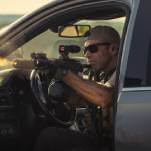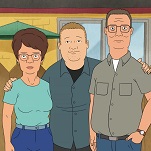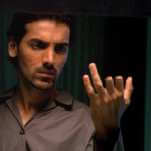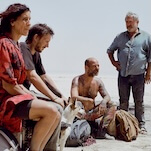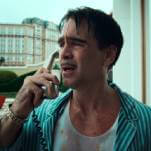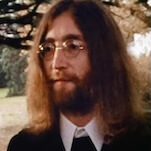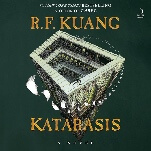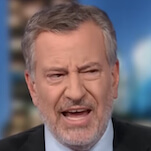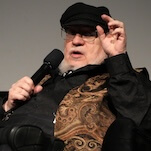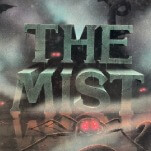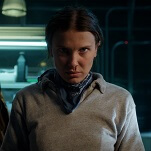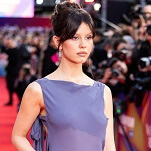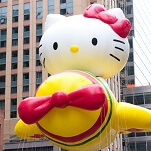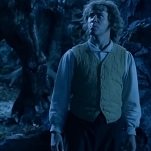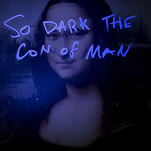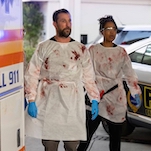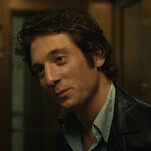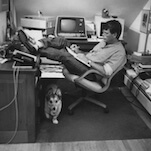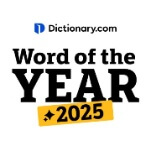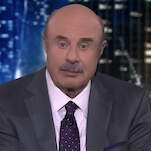We’re only three months into Donald Trump’s presidency and it’s already cliché to frame TV and film criticism within the framework of “Trump’s America.” Yet there’s one scene in this episode during which I couldn’t help but think of The Donald. As Joy gets Danny to open up about his time in K’un-Lun, he describes his journey to becoming the Iron Fist:
When I got to the monastery post-crash, I learned of a certain position. A powerful, important job and I wanted it… Everyone there, and I mean everyone, said there was no way a xiaoguilao like me could do it… [But being called an outsider] just made me want the job more. The problem was I never thought through why I wanted this job. I mistook my stubborn will for a sense of destiny or something. I never counted the cost of what it would actually mean for my life.
If you had to sum up Trump’s road to the presidency, you couldn’t do it more eloquently than Danny does. But like Star Trek Beyond before it, Iron Fist seems to think there’s something eminently relatable in the idea of almost accidentally achieving all of your dreams and then feeling dissatisfied and bored by your success. And perhaps for some people that is a relatable problem. But I’d wager that for most people, particularly those who have a harder path to walk in life (you know, those who don’t start out with small million dollar loans from their parents), it’s a fairly privileged problem to have.
To be fair, Danny’s story isn’t the usual tale of privilege. Sure he was born into a wealthy family and comes back into that money in this episode, but he’s also experienced a lot of tragedy—from losing his parents at a young age, to being cut off from his old life, to growing up in an abusive monastery. And Danny does emphasize that he had to work incredibly hard to earn his position as the Iron Fist, so he didn’t just luck into it. But on a purely metaphorical level, Danny’s disinterest in the Iron Fist position he bullheadedly fought for couldn’t be more potent.
Now it would be one thing if Iron Fist were aware of how neatly Danny’s monologue echoes the blindness of privilege. Indeed, the joy of Marvel’s other iron hero Iron Man is just how much the films play around with Tony Stark’s relationship to his privileged life and persona. But so far this show doesn’t seem interested in truly delving into Danny’s psyche. He’s Hannah Horvath but without any of Girls’ self-awareness. And while that’s first and foremost a writing issue, Finn Jones’ inability to make Danny feel like a cohesive character doesn’t help either.
Since the show is so far refusing to actually dramatize Danny’s time in K’un-Lun, it’s largely up to Jones to convey the way Danny’s upbringing has somehow produced a grown man who’s equal parts childlike innocent and fierce warrior. And each new episode reaffirms that he’s just not quite up to the task. Of all the facets of Danny he’s asked to play, Jones is best at his Big-like, child-turned-adult innocence. And this episode depicts Danny at his most childlike as he finally earns his fair share of Rand Enterprises and begins his new job. He gets distracted by stickers he put under his dad’s old desk, immediately starts playing around his rolling chair, and handles a board meeting with the finesse of a self-righteous teenager. It’s all supposed to be a little funnier than it is in practice, but the exploration of Danny’s odd arrested development mostly works.
It’s the rest of Danny’s complicated personality that Jones isn’t able to pull off as well, particularly when Danny needs to be thoughtful and/or menacing. He’s not helped by a script that struggles when it comes to creating anything resembling naturalistic dialogue (Danny and Joy’s jokey conversation about robes was particularly terrible). But he just can’t conjure up the right fortitude as Danny confronts members of The Triad, first with his fists and then with his words. At no point in this show has Danny actually felt like the most fearsome warrior on Earth. And that’s another thing that makes it easier to view him as a moody trust fund kid, not a young man coping with the weight of an enormous responsibility.
On the whole, however, “Eight Diagram Dragon Palm” continues the better pacing and improved action of last episode. But where that episode was helped by comparisons to the show’s slow start, this time around the weak spots stand out just a little bit more. Colleen’s two-on-one cage fight seems like a retread of the first, Danny and Joy’s bonding is a little less charming the second time around, and Ward’s angst and jealously over Danny usurping his position has already been well established.
The episode does introduce a new relationship dynamic as Harold and Danny have their first proper meeting since Danny’s return. More so than any other series in the Marvel Cinematic Universe save perhaps Thor, Iron Fist is about family. And the idea of Danny inherently trusting Harold as a pseudo father figure (not to mention the brotherly rivalry that stirs up in Ward) could have some powerful payoff down the line. For now, however, it’s just setup as Harold convinces Danny to help him break free from under The Hand’s thumb (pun very much intended), even as we see Harold enjoy the bloody benefits of that relationship elsewhere.
The episode also offers Iron Fist’s biggest action setpiece yet as Danny faces off against half a dozen Triad fighters when they attempt to kidnap Joy as part of their plan to win back the much-discussed pier. The fight is clearly trying to be a standout sequence like Daredevil’s many hallway fights or Luke Cage’s Crispus Attucks break-in. And it’s probably the best fight scene Iron Fist has offered so far, with some real personality in its stylish editing. But it suffers—like all of Iron Fist’s fight scenes—from feeling a little under-rehearsed (as someone pointed out in the comments, Jones has talked about having to learn fight choreography 15 minutes before filming, which is insane). The hits don’t quite feel like they land, and given that one of Marvel’s most famous fights is also set in an elevator, it’s hard for this one not to feel like it comes up a little short.
These past two episodes have demonstrated that Iron Fist has more potential than there initially seemed to be in the series’ debut. But the show still isn’t fully living up to that potential, at least not yet. Using Danny’s relationship with his Iron Fist powers as a metaphor for privilege or regret or even trauma could be a strong way to go. But Iron Fist needs to tell that story purposefully and intentionally, not just paddle around aimlessly in vaguely thematic waters.
Iron Fist has inadvertently created a privileged hero perfectly tailored to speak to our current political and cultural climate. Now the show just needs to actually do something with him.
Stray observations
- This is unrelated to the quality of this episode, but it’s something that occurred to me while watching it: One common argument against the campaign for an Asian-American Iron Fist was that it would be too stereotypical to cast an Asian-American actor as the one superhero who’s powers involve martial arts. Yet both this show and Daredevil constantly use one-dimensional Asian and Asian-American martial artist characters as their villains anyway. Why is that less of a problem than a three-dimensional Asian-American hero who does martial arts?
- As we’ve seen before, Ward has his dad listed in his phone as Frank N. Stein. That’s an even better gag now that we know Harold really did rise from the dead.
- All I could think about during the hatchet hallway fight was the moment in Raiders Of The Lost Ark when Indy shots the master swordsman. In other words, I feel like The Triad should find a more efficient weapon.
- This show is very bad at justifying why its central characters don’t call the police when something goes wrong.
- Before he returned to New York, had Danny not spoken English since he was 11 years old? Or is K’un-Lun a multi-lingual city? If it’s the former, his language recall skills are truly impressive.
- If I were Colleen, I would’ve taken Danny’s offer to pay my rent in a heartbeat.
- For the record, Hogarth doesn’t like to be called “J-Money.”
